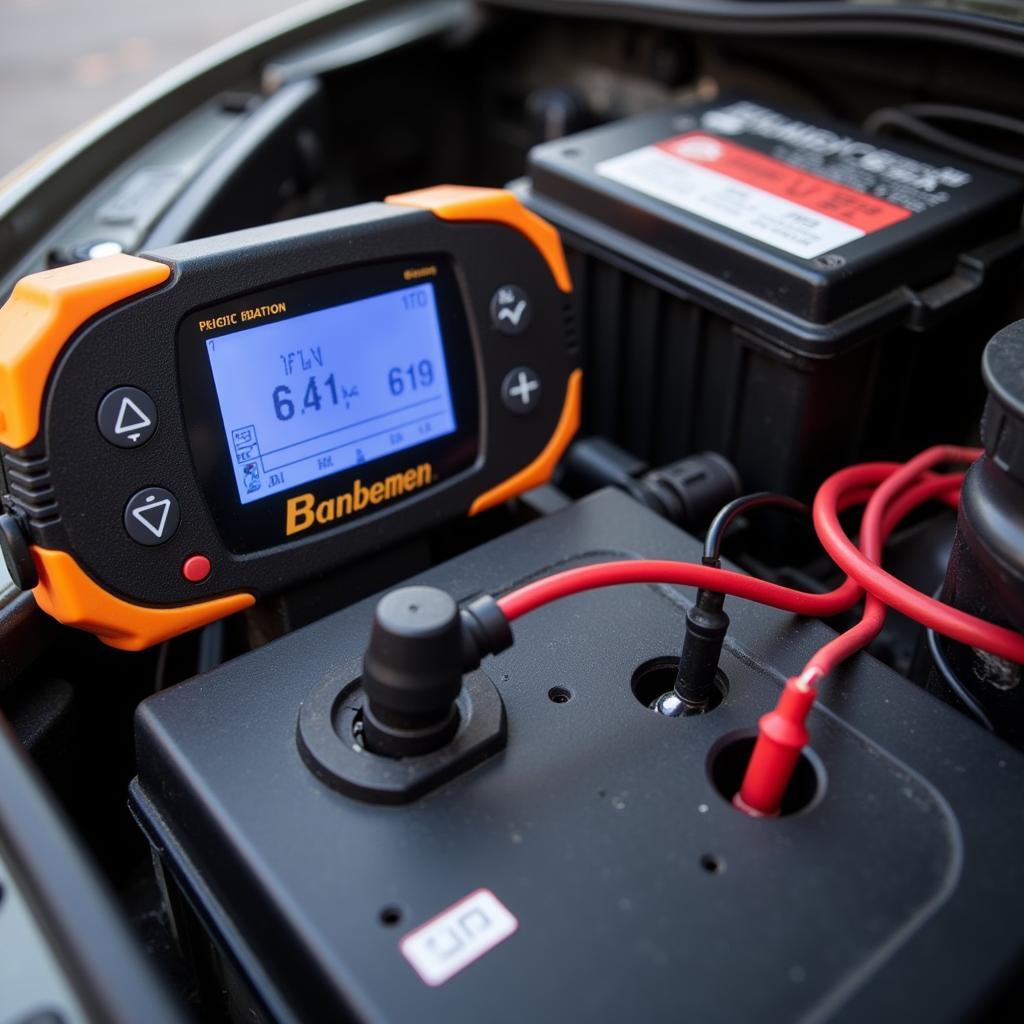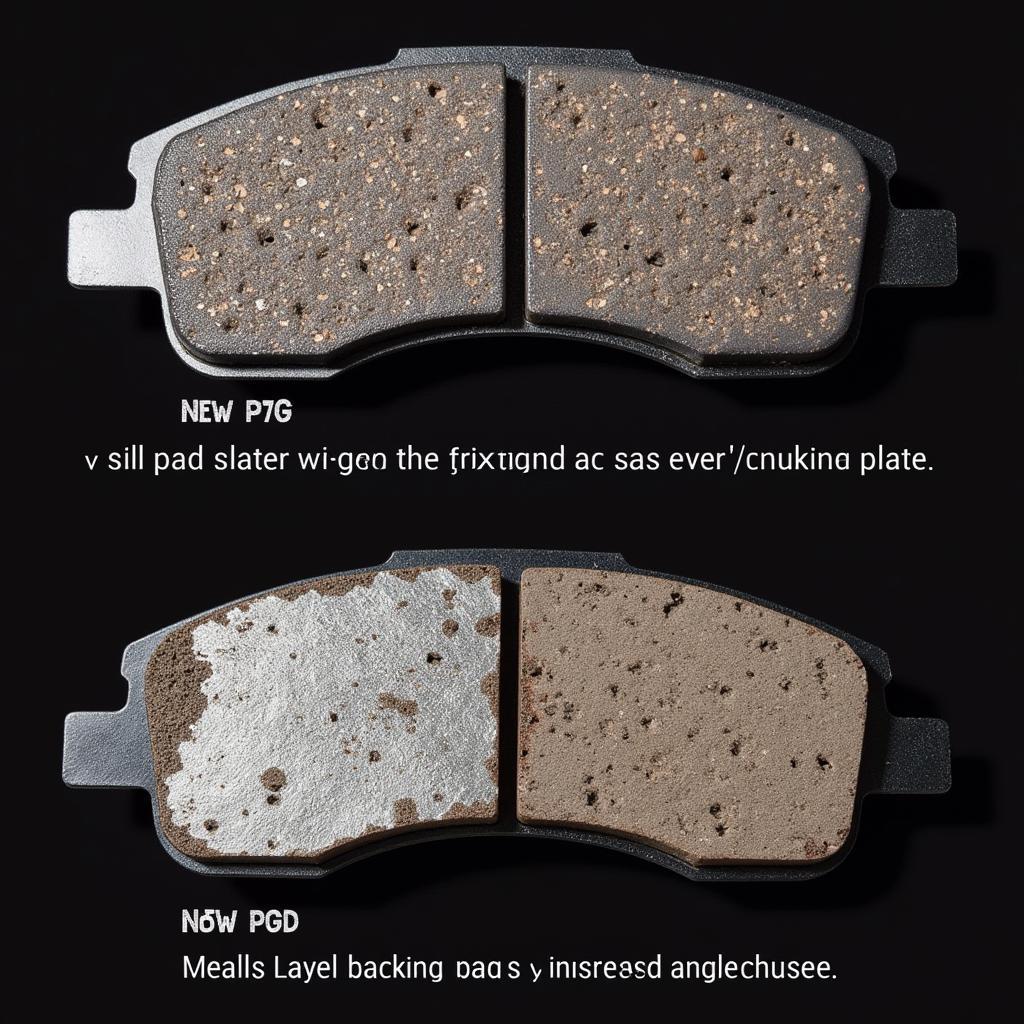You changed your alternator, hoping to solve your battery drain issue, but the problem persists. Frustrating, right? This guide dives deep into the reasons why your battery might still be draining even after an alternator replacement, offering practical solutions and expert advice to get you back on the road.
Why is My Battery Still Draining After Changing the Alternator?
Several culprits could be draining your car battery even with a brand new alternator. Let’s explore the most common causes and how to diagnose them.
Parasitic Draw: The Silent Thief
A parasitic draw is an electrical component that continues to consume power even when the car is off. This can range from a faulty interior light to more complex issues within the car’s electrical system. Identifying and eliminating this “silent thief” is key to resolving your battery drain.
 Parasitic Draw Test with Multimeter
Parasitic Draw Test with Multimeter
To check for a parasitic draw, you’ll need a multimeter. Disconnect the negative battery cable and connect the multimeter in series between the cable and the negative battery terminal. A reading above 50 milliamps generally indicates a parasitic drain.
Bad Battery: A Common Culprit
Sometimes, the simplest answer is the correct one. Your battery itself might be faulty, unable to hold a charge even with a functioning alternator. A simple battery test at your local auto parts store can quickly confirm or rule this out.
 Car Battery Test
Car Battery Test
Faulty Wiring or Connections: Hidden Troublemakers
Loose or corroded wiring and connections can create resistance in the electrical system, leading to energy loss and a draining battery. Inspect all connections related to the charging system, including the alternator, battery terminals, and ground connections.
New Alternator, Old Problems: The Defective New Part
While rare, a new alternator can be defective right out of the box. If you’ve ruled out other possibilities, consider having the new alternator tested.
How to Troubleshoot a Draining Battery
Diagnosing a car battery drain requires a systematic approach. Follow these steps to pinpoint the source of the problem:
- Test the battery: Start with the basics. Have your battery tested to ensure it’s holding a charge properly.
- Check for parasitic draw: Use a multimeter to measure current draw with the car off.
- Inspect wiring and connections: Look for loose, corroded, or damaged wires and connections.
- Test the alternator: Even a new alternator can be faulty. Have it tested to ensure it’s functioning correctly.
- Seek professional help: If you’re unable to identify the issue, consult a qualified automotive electrician.
“A systematic approach is essential when diagnosing a car battery drain. Don’t jump to conclusions, start with the basics and work your way through the potential causes,” advises Alex Thompson, Lead Automotive Electrical Technician at Thompson Automotive Solutions.
Preventing Future Battery Drain
Once you’ve resolved the current drain, take preventative measures to avoid future issues:
- Regularly clean battery terminals: Corrosion can impede the flow of electricity.
- Minimize accessory use with the engine off: Avoid leaving lights, radio, or other accessories on when the car is not running.
- Have your charging system inspected periodically: Regular checks can identify potential problems before they become major headaches.
“Preventive maintenance is key to a healthy car battery and electrical system. Regular inspections and simple cleaning can save you a lot of trouble down the road,” says Maria Sanchez, Senior Automotive Engineer at Sanchez Automotive Consulting.
Conclusion
A draining battery, even after changing the alternator, can be a frustrating problem. By systematically investigating the potential causes and following the troubleshooting steps outlined in this guide, you can pinpoint the issue and get your car back in working order. Remember, regular maintenance can prevent future battery drain issues and ensure the longevity of your car’s electrical system.
FAQ
- Can a bad alternator drain a new battery? Yes, a faulty alternator can prevent the battery from being charged properly, eventually leading to a dead battery.
- How long should a car battery last? Typically, a car battery lasts between 3 and 5 years.
- What are the signs of a bad alternator? Dimming headlights, flickering dashboard lights, and a whining noise from the engine compartment are common signs of a failing alternator.
- Can I drive with a bad alternator? You can drive for a short distance with a bad alternator, but the battery will eventually drain, leaving you stranded.
- How much does it cost to replace an alternator? The cost of an alternator replacement varies depending on the make and model of your vehicle but generally ranges from $300 to $800.
- How can I test my car battery at home? You can use a multimeter to check the battery voltage. A fully charged battery should read around 12.6 volts.
- What is a parasitic draw test? A parasitic draw test measures the current draw from the battery when the car is off, helping to identify any components that are draining power unnecessarily.



